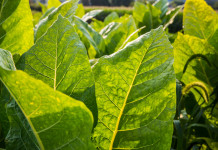Smoking cessation has both good and bad side effects, and when you clearly understand all of these you will get the best possible results from your efforts. One of the most common problems that individuals experience when the quit using cigarettes is nicotine withdrawal. This can lead to cravings, headaches, anxiety, depression, and many other conditions that can range from mild to extremely uncomfortable.
Dealing with withdrawal is not easy, whether you are addicted to tobacco or another drug, Many medical experts and scientists have compared tobacco to heroin as far as the level of addiction and difficulty recovering are concerned, and it is considered one of the most difficult drugs to stop using for many individuals. A majority of those who have quit have had to make repeated attempts before they actually succeed, and the relapse rates are high.
There are many techniques and tips that can help you get through nicotine withdrawal without relapsing and lighting up. Keeping your mind occupied and staying busy will minimize your thoughts and cravings concerning tobacco use. Take up a hobby or start an exercise program so that you can reach your goals without fail.
Just because you may experience negative side effects this does not mean that you should give up your attempts at smoking cessation, only that you should have a well thought out plan in place before you take this step. Plan ahead for when cravings hit and you will be less likely to give in when this happens. Examine ways to keep your hands occupied, and use methods like gum and hard candies to keep your oral fixation satisfied.
Nicotine withdrawal symptoms are uncomfortable but they are not dangerous, and they will pass after a short time. The health benefits that you will get from this effort far outweigh any minor symptoms that a lack of nicotine will cause. When you plan ahead for any eventuality you are much more likely to be successful and prevent any potential relapses.
































